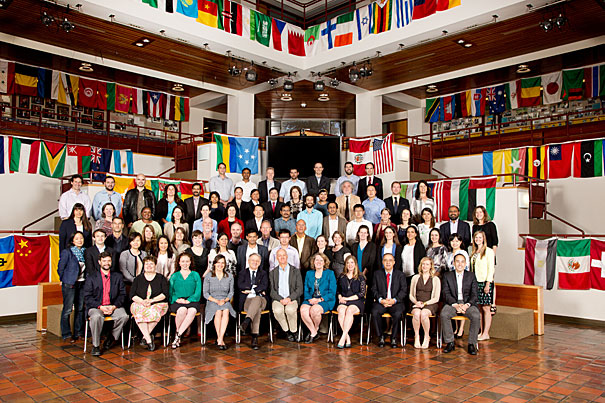Science & Tech
-

A ‘cocktail’ recipe for brain cells
Stem cell biologists discover how to regenerate type damaged in ALS, spinal cord injuries

-

When you do the math, humans still rule
Harvard’s Lauren Williams, a MacArthur ‘genius,’ joins international effort to challenge notions of AI supremacy
-

‘Imagination’
Less like a picture, more like a video game? Cognitive scientist explains how we ‘see’ what isn’t real.
-

Breaking chess’s rating stalemate
Ranking skill can be tricky when the best players draw more than they win, so a Harvard statistician invented a new method

-
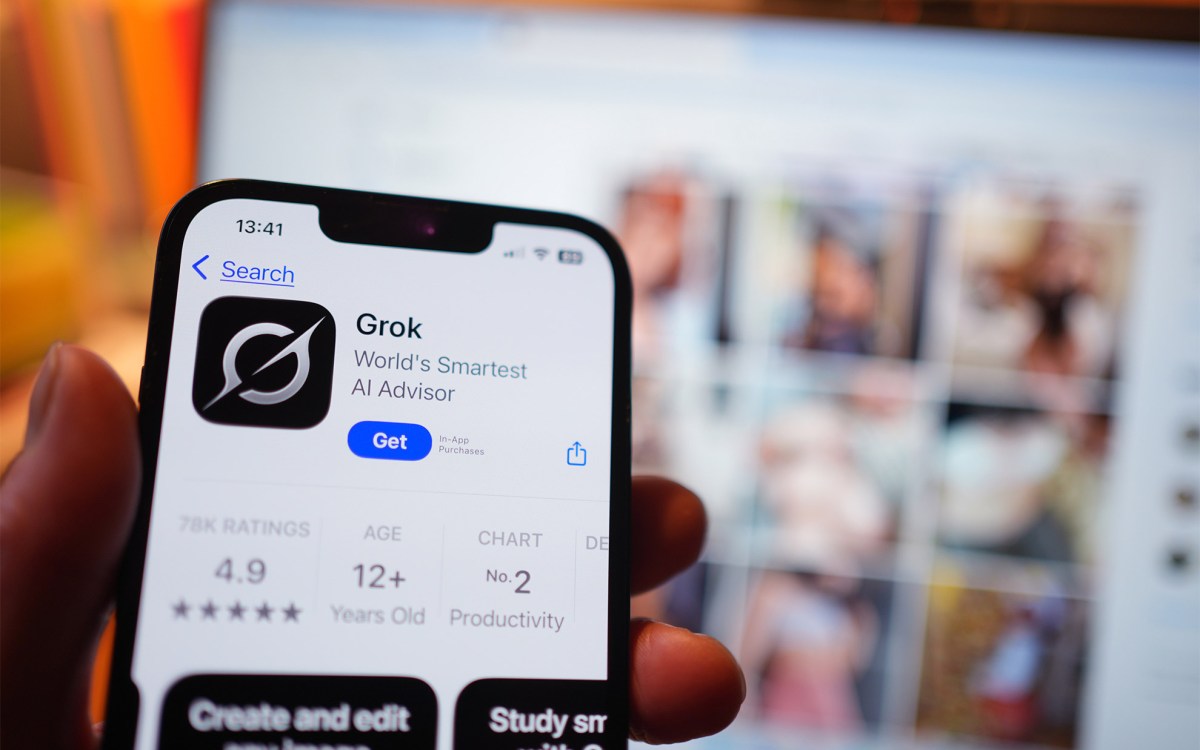
How AI deepfakes have skirted revenge porn laws
Limits unclear when explicit images of individuals look real, but are digitally generated
-
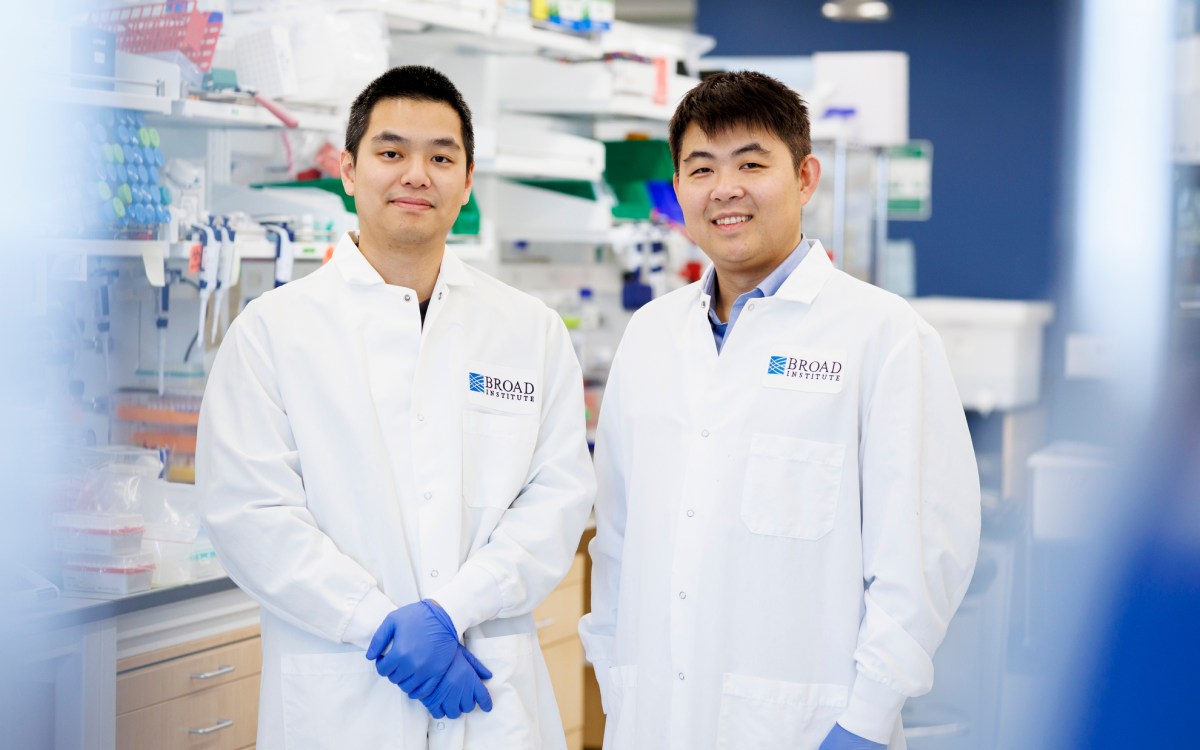
How did that cancer cell become drug-resistant?
Researchers find way to create microscopic archives of gene activity to gain insights into how, why changes happen

-
Milky Way had blowout bash 6 million years ago
Researchers analyzed archival X-ray observations from the XMM-Newton spacecraft and found that the missing mass from the Milky Way is in the form of a million-degree gaseous fog permeating our galaxy.

-
The first autonomous, entirely soft robot
Developed by a team of Harvard researchers, the first autonomous, entirely soft robot is powered by a chemical reaction controlled by microfluidics. The 3-D-printed “octobot” has no electronics.

-
Exoplanet might have oxygen atmosphere, but not life
Researchers believe they may for the first time detect oxygen on a rocky planet outside the solar system.

-
‘Smoke waves’ will affect millions in coming decades
Wildfires threaten more than land and homes. The smoke they produce contains fine particles (PM2.5) that can poison the air for hundreds of miles. Air pollution from the 2016 Fort…
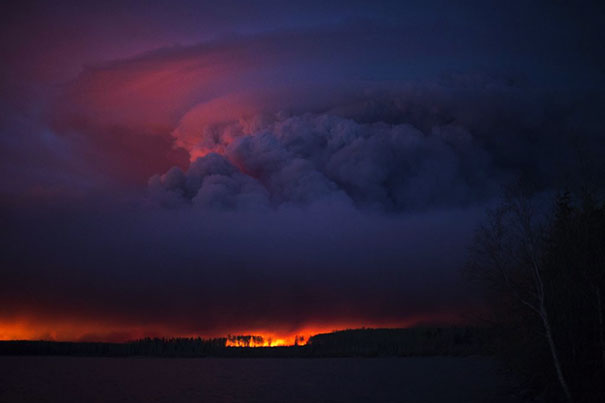
-
Toward a better screen
Harvard researchers have designed more than 1,000 new blue-light-emitting molecules for organic light-emitting diodes that could dramatically improve displays for televisions, phones, tablets, and more.

-
Resolving conflict: Men vs. women
Using videos of four sports in 44 countries, researchers found that men are far more likely to engage in friendly physical contact — handshakes, back pats and even hugs — following competition than women are.
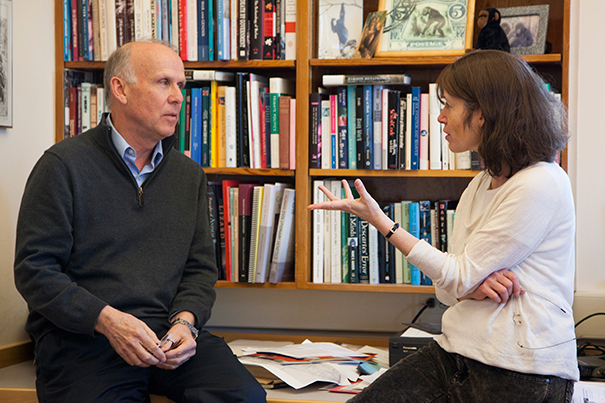
-
Calculating the odds of life between the Big Bang and the final fade
The universe is 13.8 billion years old, but our planet formed just 4.5 billion years ago. Some scientists think this time gap means that life on other planets could be…

-
Design for movement
GSD architecture graduate Lauren Friedrich, M.Arch. ’16, looks at how architecture can better support health by providing unexpected physical challenges and minor obstacles rather than always prioritizing ease and comfort.
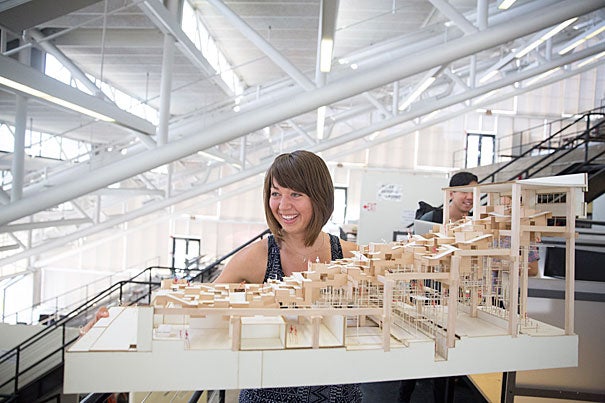
-
New way to model molecules
Scientists from Harvard and Google have demonstrated for the first time that a quantum computer could be used to model the electron interactions in a complex molecule.
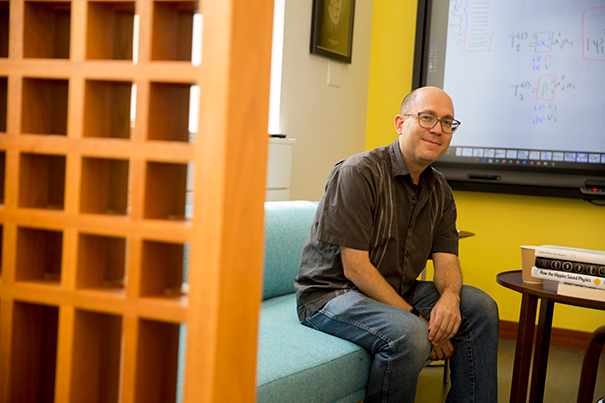
-
Between Cuba and Harvard, an uncommon garden
Historian Leida Fernandez-Prieto came to Cambridge to research a Cuban botanical garden with Harvard roots.
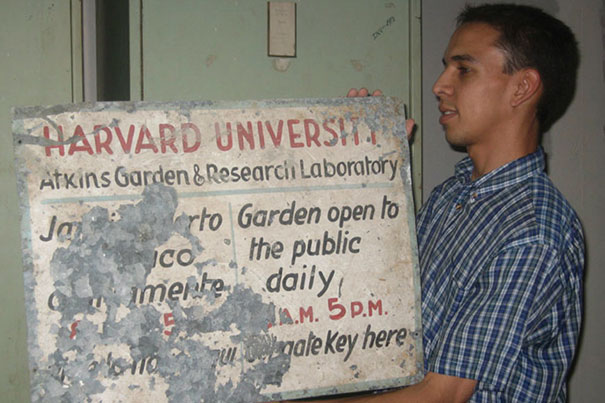
-
Just-so black holes
New findings advance insight on formation of supermassive black holes in the early epochs of the universe.

-
Minding the details of mind wandering
A new study sheds light on important differences between intentional and unintentional mind wandering.
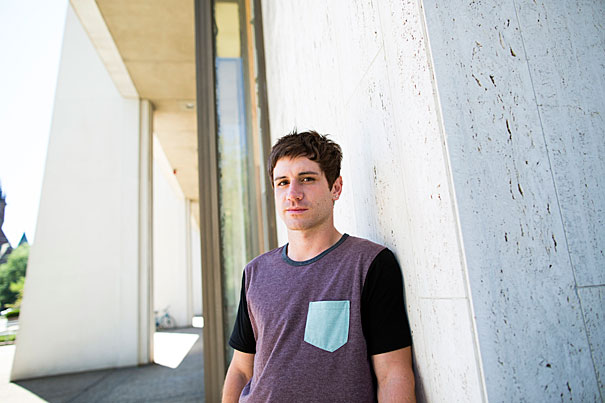
-
A battery inspired by vitamins
Harvard researchers have developed a new class of battery electrolyte material based on vitamin B2 that could enable large-scale, inexpensive electricity storage for renewable power sources.

-
The high price of workplace stress
Experts discuss findings from a new Harvard T.H. Chan School survey about how workers say their jobs affect their health, and what companies can and should be doing to help.
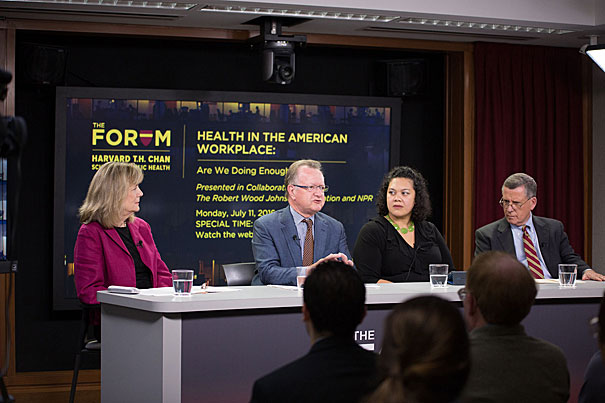
-
Eternal light, up for grabs
Martin Elvis of the Harvard-Smithsonian Center for Astrophysics warns that a loophole in the Outer Space Treaty leaves open the possibility of a race for resources on the moon.
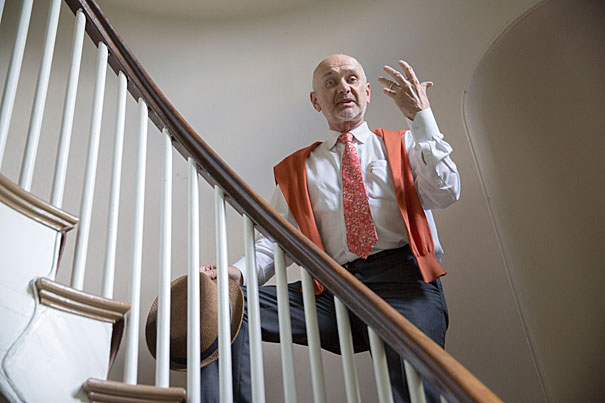
-
Microscopy taps power of programmable DNA
With a super-resolution microscopy, a team of researchers at Harvard’s Wyss Institute has leveraged the power of programmable DNA.
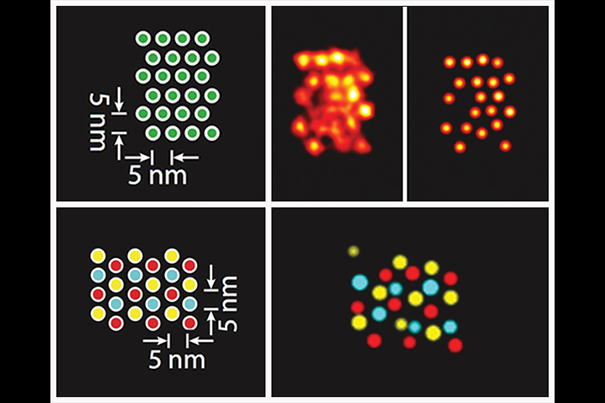
-
Turning the brain green
Harvard neurosurgeon Ann-Christine Duhaime thinks a better understanding of the brain’s reward system might help encourage greener living.
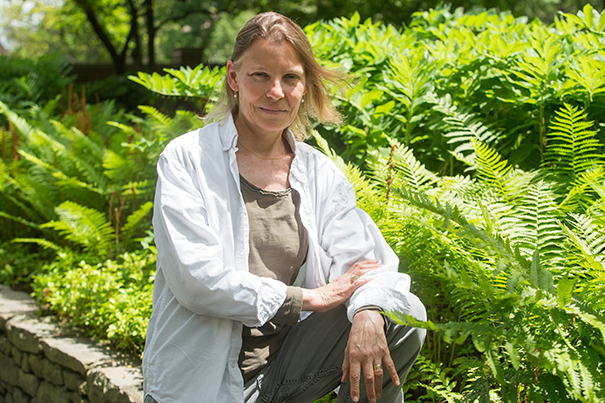
-
The power of babble
Babies need conversational stimulation for their intellectual development, and a piece published in JAMA Pediatrics hopes to advise parents and pediatricians on how and when to best nurture that development.

-
Unveiling Jupiter’s mysteries
In less than a week, the spacecraft Juno will reach Jupiter, culminating a five-year, billion-dollar journey. Its mission: to orbit and peer deep inside the gas giant and unravel its origin and evolution. One of the biggest mysteries surrounding Jupiter is how it generates its powerful magnetic field, the strongest in the solar system.

-
Nature as storm defender
The Radcliffe Institute for Advanced Study’s new program “Next in Science” brought together early career scientists to present their research to Harvard and the public. The event, which included speakers from the University of Glasgow and the Sea Education Association, offered a preview of Radcliffe’s October ocean symposium, “From Sea to Changing Sea.”
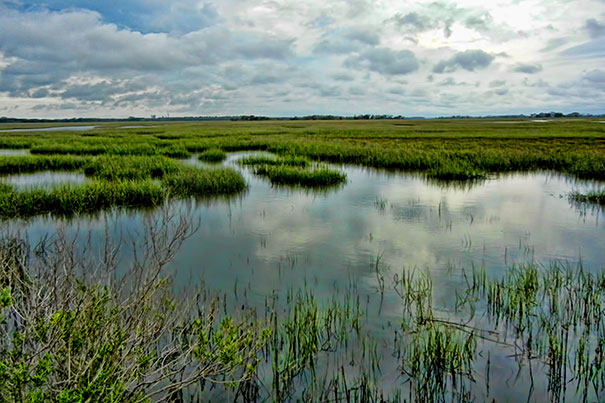
-
Tackling carbon emissions in China
A Beijing symposium co-sponsored by the Harvard China Project and the Harvard Global Institute explored the possibility of China adopting a carbon tax as a way to reduce climate-warming greenhouse gas emissions. The Gazette spoke with economist Dale Jorgenson, the Samuel W. Morris University Professor, and Chris Nielsen, the executive director of the China Project, about the symposium and the broader issues involved.
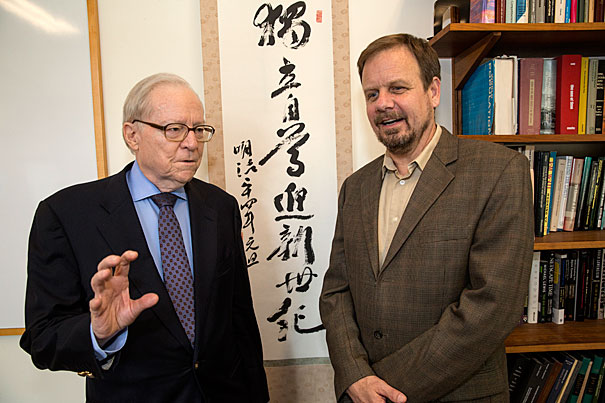
-
On demand, and now on schedule
Joshua Meier ’18, a computer science and chemistry concentrator at the Harvard John A. Paulson School of Engineering and Applied Sciences, launched TaxiLater, an iPhone app that lets users arrange an Uber pickup hours, days, or even months in advance.

-
Defending breakthrough research
Harvard initiates patent infringement suits to protect inventors’ rights in computer-chip technology.
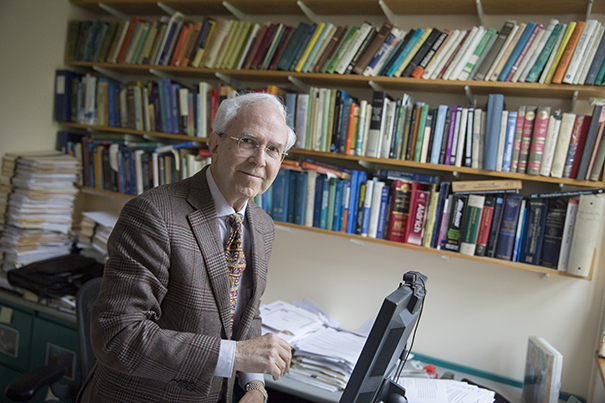
-
Fishing gaps called malnutrition threat
Declining fish catches around the world have set off concerns about malnutrition, especially among the poor.
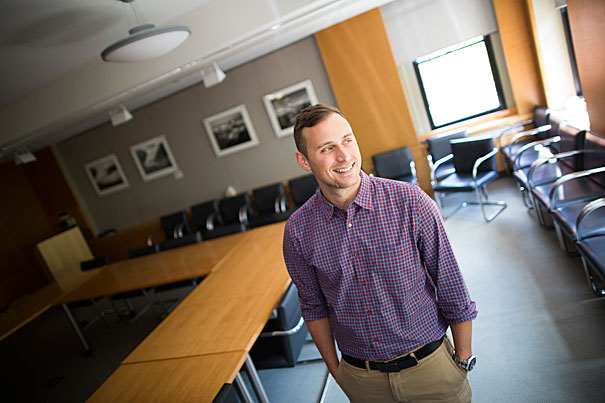
-
Behind China’s viral curtain
A study by Professor Gary King and two former graduate students points to an effort by the Chinese government to use social media to discourage anti-government action.
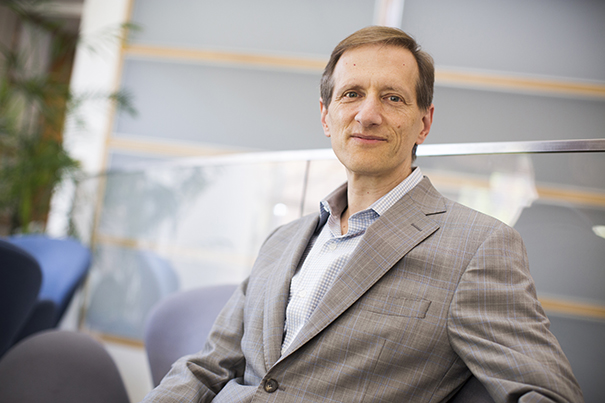
-
More time free from disability
Harvard researchers are among the co-authors of a new study saying that the increase in life expectancy in the past two decades has been accompanied by an even greater increase in years free of disability, thanks in large measure to improvements in cardiovascular health and declines in vision problems.
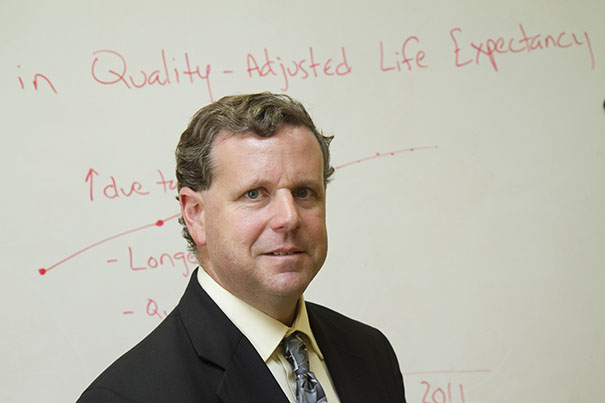
-
Keeping up with the weather
CIO Bryson Koehler outlined the Weather Company’s data-driven overhaul in his keynote at the Harvard IT Summit.
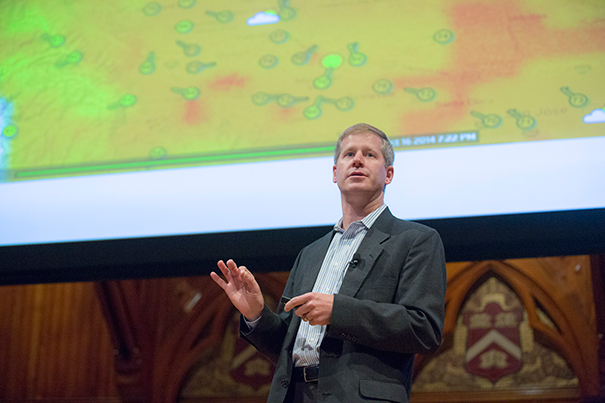
-
Bionic leaf turns sunlight into liquid fuel
A cross-disciplinary team at Harvard has created a system that uses solar energy to split water molecules and hydrogen-eating bacteria to produce liquid fuels.
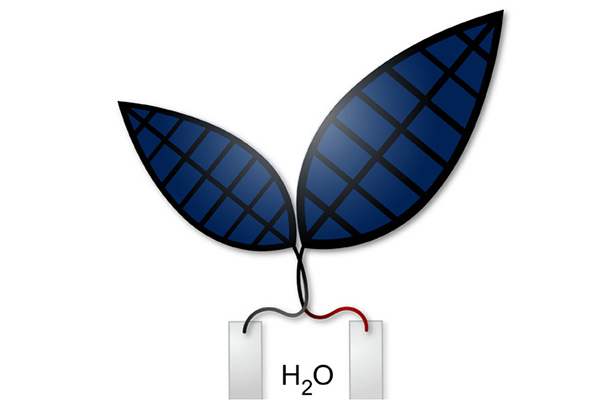
-
Discovering soil-less farming
Jiyoo Jye, a recent student at the Harvard Graduate School of Design, created a research archive of her discoveries, progress in soil-less agriculture.
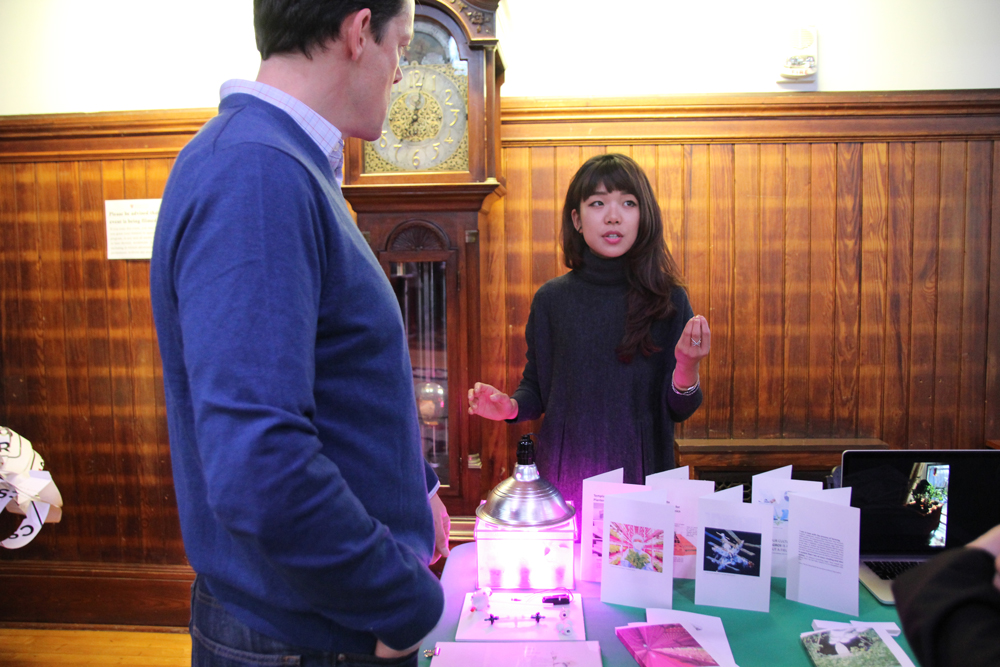
-
The Sustainability Science Program at 10
The Sustainability Science Program celebrates its 10th birthday by welcoming back previous fellows to discuss progress in the field and the challenges ahead.
